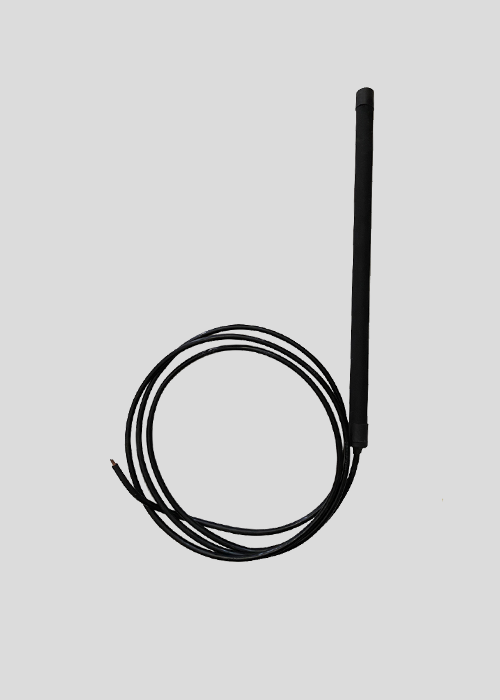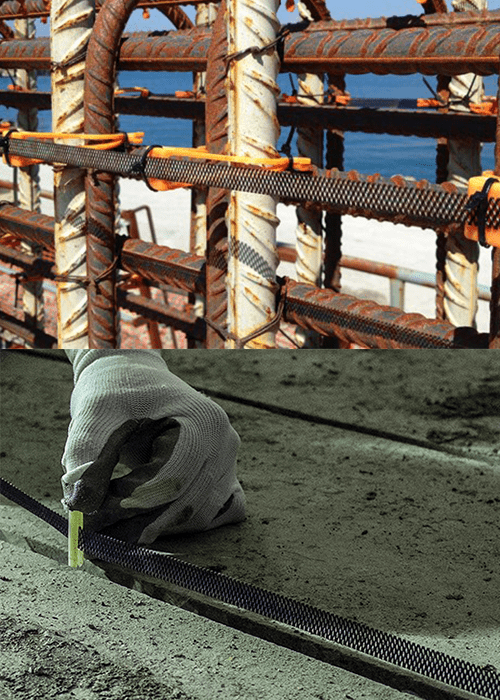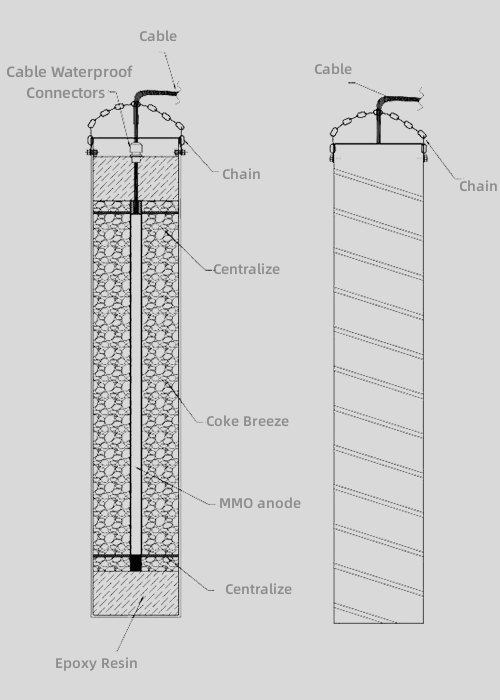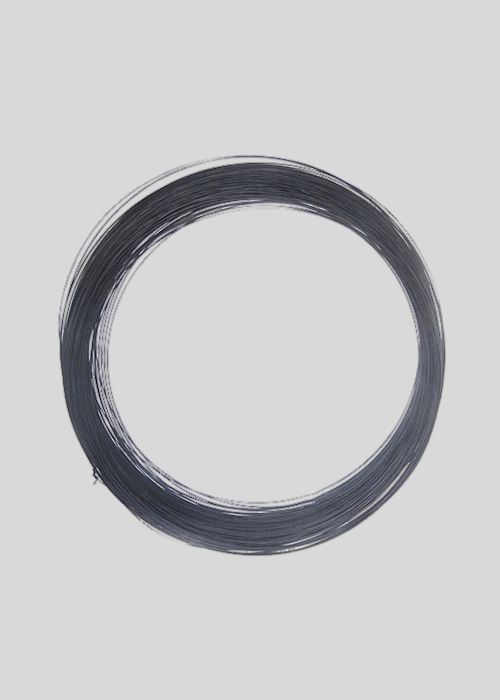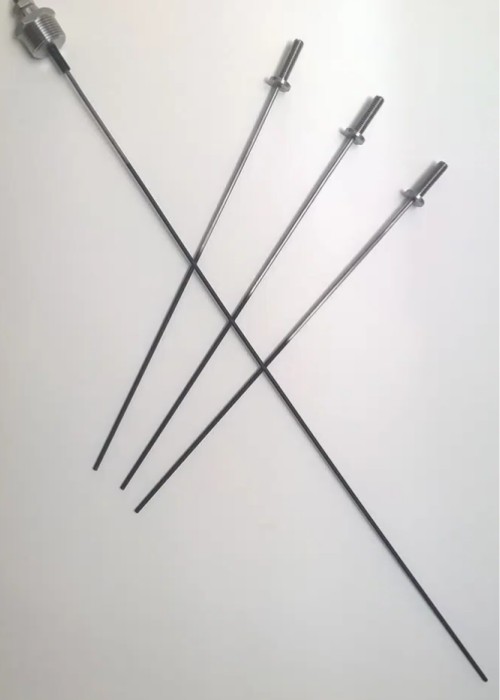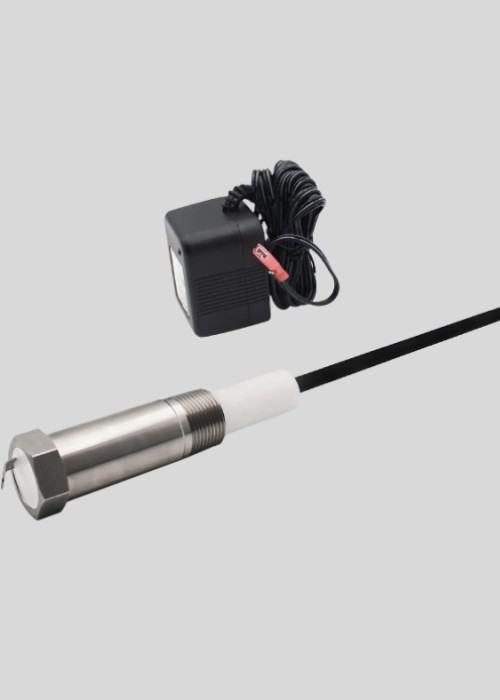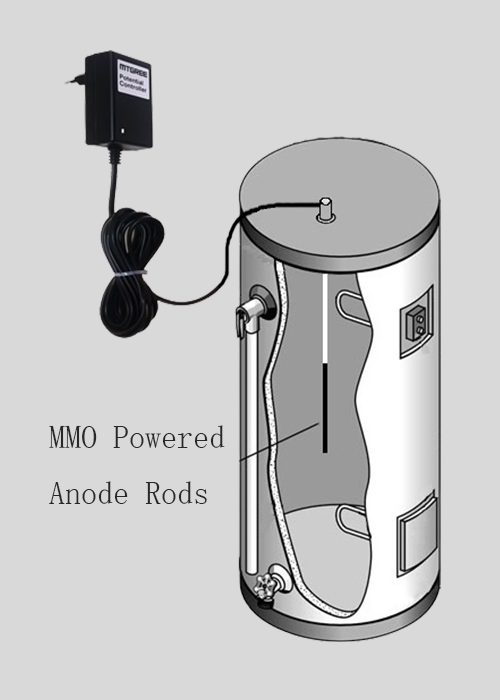Our Support
What Do You Need to Know About ICCP Anodes?
An impressed current anode, or ICCP anode, is a specific type of anode utilized in cathodic protection systems to safeguard submerged sheet and tubular pilings from corrosion. Although cathodic protection systems have been in existence for a considerable period, only recently have cost-effective and efficient methods emerged to combat corrosion.
ICCP anodes function through an external current cathodic protection approach, which forces the anodic region. This is accomplished by connecting the power supply’s positive electrode to the insoluble auxiliary anode and the negative electrode to the protected cathode, driving the cathodic area.
Both the ICCP anode and the protected cathode are situated in a consistent electrolyte, ensuring thorough and even contact with the electrolyte. This arrangement allows the surfaces of the protected cathode to obtain free electrons and benefit from the shielding effect of cathodic protection.
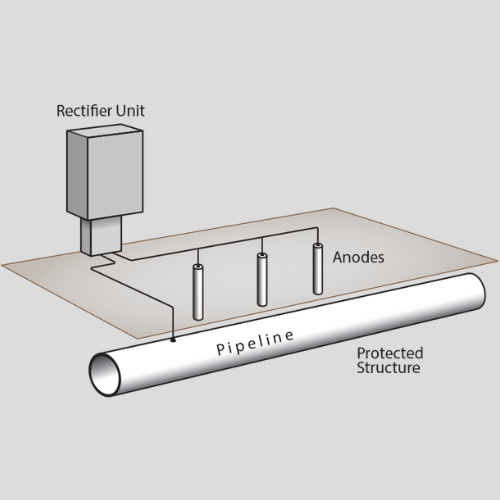
How Does an Impressed Current Anode Function?
ICCP cathodic protection serves as an exceptionally effective method for combating corrosion. This technique entails the application of electric current from an external source, typically using an impressed current anode.
Cathodic protection operates through an electrochemical process in which a direct current is impressed onto an ICCP anode, subsequently releasing electrons onto the metal surface to inhibit corrosion. This approach is highly efficient in safeguarding metals from corrosion, regardless of whether they are submerged or buried.
Impressed current cathodic protection systems function by connecting an ICCP anode and a cathode to a direct current (DC) power source. The impressed current anode is directly linked to the metal structure requiring protection, while the cathode is connected to a ground. Upon activating the DC power source, a minor current flows through the anode and cathode, generating a potential difference between them. This potential difference initiates an electrochemical reaction at the impressed current anode, leading to the release of electrons into the metal. These electrons then interact with the metal surface, creating a protective layer that impedes further corrosion.
Difference Between ICCP Anodes and Sacrificial Anodes
When choosing between a sacrificial anode and an ICCP anode for specific protection purposes, it’s crucial to assess each situation individually. Generally, sacrificial anode cathodic protection is more cost-effective and practical for buried pipelines due to low stray current interference, high soil resistivity, and insufficient protection current.
Blow Form provides a comprehensive comparison between ICCP anodes and sacrificial anodes, So you can easily to choose what is the right anodes for your project , If you have any question or Project
we would Like to hear your feedback so pls don’t hesitate to contact us for more information , thanks
| Type | Advantages | Disadvantages |
|---|---|---|
| ICCP Anode | 1. Continuously adjustable output current.
2. Large protection range. 3. Unaffected by environmental resistivity. 4. More economical for larger projects. 5. Long service life of protection device. |
1. Requires external power supply.
2. Significant interference with adjacent metal structures. 3. High maintenance and management workload. |
| Sacrificial Anode | 1. No external power supply required.
2. Minimal interference with adjacent structures. 3. No management needed after commissioning. 4. More economical for smaller projects. 5. Uniform current protection distribution with high utilization. |
1. Unsuitable for high resistivity environments.
2. Protection current is nearly unadjustable. 3. Good quality covering layer required. 4. Complex commissioning work. 5. Consumption of non-ferrous metals. |
Benefits of Using Impressed Current Anodes
Impressed current anodes (ICCP) offer versatility and can be employed across a wide range of applications in various industries. Key advantages of using ICCP anodes include:
Adjustable Output Voltage: The output voltage can be fine-tuned to protect sizable or non-corrosive structures that remain relatively unaffected by soil resistivity.
Reduced Anode Dosage and Excavation Workload: ICCP anodes necessitate minimal anode dosage and excavation efforts.
Suitable for Large Structures: ICCP anodes are appropriate for safeguarding relatively extensive equipment structures and providing cathodic protection for large storage tanks of diverse types.
Extended Area Protection: An installed ICCP system can shield an expansive area encompassing pipelines.
Ideal for Uncoated Steel: The ICCP system delivers low-voltage DC of hundreds of amps, making it well-suited for steel that lacks effective coating.
Minimal Downtime: ICCP anodes require limited downtime for emergency repairs and can enhance the security of the underlying infrastructure.
Ease of Monitoring and Control: ICCP systems are simple to monitor and regulate, offering long-lasting corrosion resistance.
Limitations of Impressed Current Cathodic Protection
While impressed current cathodic protection offers numerous benefits, it also comes with some notable disadvantages that should be considered:
External Power Supply Dependency: ICCP systems require an external power supply to function, which may result in ongoing operational costs and the need for constant monitoring. Additionally, the system’s performance can be affected by power outages or fluctuations in the power source.
System Location Constraints: The impressed current anode system needs to be situated more than 50 meters away from the pipeline to prevent interference with its operation. This distance constraint can pose challenges in densely populated areas or where space is limited, and can also cause interference with adjacent metal structures, particularly those close to the auxiliary anode.
Anode Bed Maintenance Challenges: Sustaining the anode bed in optimal conditions can be difficult because the generated gas might not be discharged quickly enough. This slow discharge can lead to gas resistance, which in turn increases the bed’s resistance and may negatively impact its effectiveness and lifespan.
Stray Current Issues: ICCP anodes can sometimes generate stray currents, which can inadvertently accelerate corrosion on nearby unprotected metal structures. This can lead to unintentional damage to adjacent assets if not properly managed.
Environmental Impact: The installation and operation of ICCP systems may have an environmental impact, particularly in sensitive environments. Careful planning and monitoring are required to minimize any potential negative consequences.
Complexity and Expertise: Designing, installing, and maintaining an impressed current cathodic protection system can be complex and requires specialized knowledge and expertise. This can result in increased costs for training or hiring qualified personnel to manage the system effectively.
Despite these limitations, ICCP anodes remain a valuable and effective solution for corrosion protection in various applications. By carefully considering these drawbacks and addressing them in the planning and implementation stages, the benefits of impressed current cathodic protection systems can be maximized while minimizing potential issues.
Types of Available ICCP Anodes
Impressed current anodes (ICCP Anode) come in a diverse range of types, including tubular anodes, ribbon anodes, canister anodes, mesh anodes, and rod anodes. Each type is designed to cater to specific applications and environments, allowing users to select the most suitable option based on their individual needs and requirements.
ICCP anodes are fabricated using a titanium substrate coated with a mixed metal oxide. This combination offers exceptional protection against corrosion in harsh environments such as saltwater, sewage, and industrial waste. By understanding the unique features and benefits of each impressed current anode type, users can make informed decisions to ensure optimal cathodic protection.
①———–ICCP MMO Tubular Anode
ICCP MMO Tubular Anode
The ICCP MMO tubular anode, also referred to as a mixed metal oxide tubular anode, is a specially designed anode that features a titanium substrate coated with a layer of electrically conductive and electrocatalytically active metal oxides. These anodes exhibit exceptional versatility and are suitable for a wide range of environments, including fresh water, salt water, soil, and seawater.
MMO tubular anodes provide an excellent alternative to traditional high-silicon cast iron anodes in various applications. They are commonly used in pipeline storage tanks, shallowly buried anodes, and deep-buried anodes for cathodic protection purposes. The unique construction of these anodes allows them to offer several key advantages over conventional options.
One of the main benefits of ICCP MMO tubular anodes is their lightweight nature, which makes installation and handling much easier compared to heavier alternatives. Additionally, these anodes boast a long service life due to their robust construction and resistance to corrosion, ensuring reliable performance over time.
Furthermore, MMO tubular anodes provide a favorable cost-performance ratio, making them an attractive option for organizations seeking to balance performance and cost-effectiveness. By understanding the specific features and benefits of MMO tubular anodes, users can make well-informed decisions to ensure optimal cathodic protection in a variety of challenging environments.
Advantages of ICCP MMO Tubular Anodes
The ICCP MMO tubular anode offers a range of advantages that contribute to its popularity for electrochemical anti-corrosion protection:
- Effective corrosion protection: These anodes provide efficient shielding for the protected structure against corrosion.
- Long service life and low maintenance: The MMO tubular anode boasts a lengthy lifespan and typically does not require maintenance throughout its service life.
- Versatility and adaptability: The anode can meet the high protection current requirements of various structures, and can be implemented in numerous shapes and locations. Additionally, it is resistant to the environmental conditions of the structure system, ensuring reliable performance in diverse settings.
ICCP Tubular Anode Applications
The ICCP tubular anode is extensively employed in a variety of applications, such as:
Continuous horizontal bed: These anodes are used in cathodic protection systems that utilize a continuous horizontal bed layout.
Discontinuous horizontal bed and shallow buried vertical bed: The anode can be applied in systems with discontinuous horizontal beds or shallow buried vertical beds.
Heat exchanger, condensing water tank, and water treatment equipment: ICCP tubular anodes are utilized in heat exchangers, condensing water tanks, and various water treatment equipment to prevent corrosion.
Underground water storage tank and surface storage tank: These anodes offer protection for both underground and surface water storage tanks.
Road, ship, bridge, building, and steel body corrosion: The ICCP tubular anode is employed in numerous structures, such as roads, ships, bridges, buildings, and steel bodies, to prevent and control corrosion
ICCP Tubular Anode Options
ICCP tubular anodes come in a variety of options to accommodate diverse applications, including size, shape, length, and coating type.
These choices allow for customization to address specific requirements across different industries and structures. The anode’s diameter can range from small to large, depending on the size of the structure requiring protection. Anode length can be adjusted as well to ensure comprehensive coverage of the structure. Coating options comprise mixed metal oxide (MMO) or platinum, based on the environment.
The array of options available for ICCP tubular anodes makes them suitable for numerous applications, from pipelines to offshore structures, delivering efficient cathodic protection.
| Environment | Anodes Diameter(mm) | Anode Length(mm) | Current Output (amps) | Life (Years) |
|---|---|---|---|---|
| Petroleum Coke, Soil, Freshwater | 19 | 1200 | 7 | 20 |
| Petroleum Coke, Soil, Freshwater | 25 | 500 | 4 | 20 |
| Petroleum Coke, Soil, Freshwater | 25 | 1000 | 8 | 20 |
| Petroleum Coke, Soil, Freshwater | 25 | 1200 | 9.6 | 20 |
| Petroleum Coke, Soil, Freshwater | 25 | 1500 | 12 | 20 |
| Petroleum Coke, Soil, Freshwater | 32 | 1200 | 12 | 20 |
| Seawater | 19 | 1200 | 45 | 20 |
| Seawater | 25 | 500 | 25 | 20 |
| Seawater | 25 | 1000 | 50 | 20 |
| Seawater | 25 | 1200 | 60 | 20 |
| Seawater | 25 | 1500 | 75 | 20 |
| Seawater | 32 | 1200 | 75 | 20 |
② ———–ICCP MMO Ribbon Anode
ICCP MMO Ribbon Anode
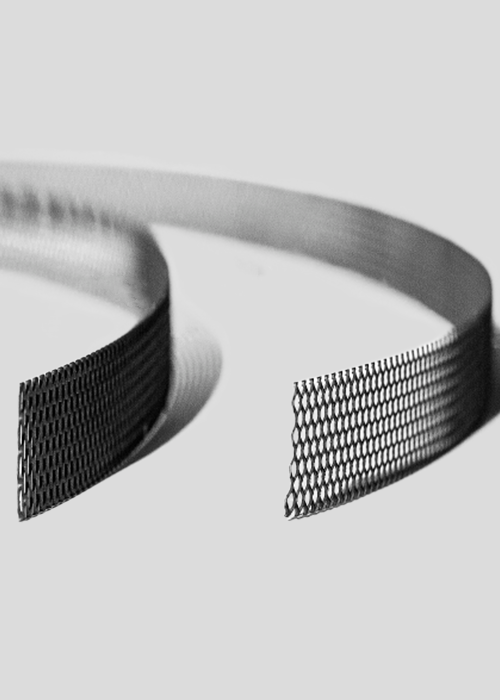
What is ICCP MMO Ribbon Anode?
The ICCP MMO ribbon anode is a specialized type of anode created using a titanium ribbon substrate coated with an electrocatalytic metal oxide layer. The low consumption rate of the MMO coating and the durable nature of the titanium substrate make it a reliable and long-lasting choice for cathodic protection systems.
The ICCP MMO ribbon anode is particularly well-suited for protecting the bottoms of underground storage tanks, reinforced concrete structures, and other metal structures that require corrosion protection. Moreover, it can efficiently protect the outer wall of tank bottom plates through the application of electrical current.
These ribbon anodes are installed vertically in the ground, spaced at intervals of no more than 305 meters. They form a grid-like pattern by spot-welding the intersections of the anodes, ensuring consistent and thorough coverage. The composition of the oxide layer on the ribbon anode can be tailored to accommodate different environments, such as seawater, freshwater, and various soil conditions, making it a versatile solution for diverse applications.
In summary, ICCP MMO ribbon anodes offer an adaptable, long-lasting, and effective means of providing cathodic protection for a wide range of structures and environments.
ICCP MMO Ribbon Anode Applications
ICCP MMO ribbon anodes are extensively used for cathodic protection in various structures across different industries. Some common applications include:
Reinforced concrete structures: ICCP MMO ribbon anodes are suitable for protecting reinforced concrete structures against corrosion caused by chlorides, carbonation, and other environmental factors. They are often used in bridges, parking structures, and buildings.
Buried steel structures and pipelines: Ribbon anodes can be used to protect buried steel structures and pipelines from corrosion caused by soil and moisture. They can be installed in a continuous or intermittent horizontal bed or a shallow vertical bed.
Underground and above-ground storage tanks: ICCP MMO ribbon anodes are an effective method for protecting the bottoms and walls of underground and above-ground storage tanks against corrosion. They can be installed vertically or horizontally, depending on the structure of the tank.
Bridge substructures: Ribbon anodes can be used to protect bridge substructures against corrosion caused by exposure to water, salt, and other corrosive agents. They are often used in bridge piers and abutments.
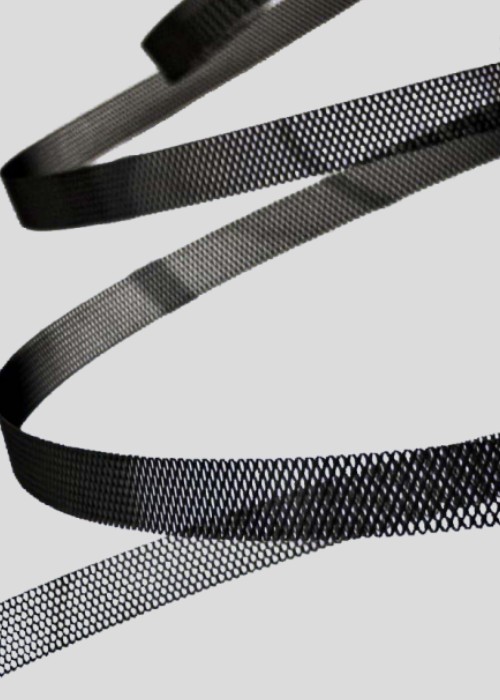
Suitable Environments for ICCP MMO Ribbon Anode
ICCP MMO ribbon anodes are highly versatile and can be used in various environments, including:
Sandy environments where the anodes can effectively protect structures from corrosion.
Environments with chlorine or oxygen precipitation, or a mixture of both, where the anodes can provide efficient cathodic protection.
Underground storage tank bottoms and reinforced concrete structures commonly use the anodes for cathodic protection. They are designed to protect the outer walls of the tank bottom plate with applied current.
Overall, ICCP MMO ribbon anodes are highly effective and adaptable solutions for corrosion protection in various environments.
ICCP MMO Ribbon Anode Advantages
The benefits of ICCP MMO ribbon anodes include:
- Lightweight – 100 feet of 1/4″ (6.35mm) ribbon weighs just over 1lb.
- Ductile and composite materials eliminate the issues associated with fracturing of brittle materials such as silicon iron and graphite.
- Dimensional stability prevents joint sealing problems.
- Versatile for various cathodic protection media (water, coke, seawater, brackish water).
- Superior corrosion resistance compared to graphite, silicon iron, and other alternative materials.
- Durable, easy to cut, and can be welded in the field to various geometries.
- Uniform current distribution, chemical corrosion resistance, and low system electrical resistance
ICCP MMO Ribbon Anode Parameter Options
ICCP MMO ribbon anodes come in various parameter options to cater to different applications. These options include:
-
Ribbon width and thickness – the width and thickness of the ribbon can be adjusted to achieve the desired current output and distribution.
-
Ribbon length – the length of the ribbon can be customized to suit the dimensions of the structure to be protected.
-
Anode spacing – the spacing between the ribbons can be adjusted to ensure uniform current distribution and optimum protection.
-
Coating type – the type of coating used on the ribbon can be chosen to suit specific environmental conditions, such as seawater or freshwater.
-
Connection type – different connection types are available, such as bolted, clamped or welded, depending on the installation requirements.
The various parameter options allow for customization of the ICCP MMO ribbon anode to meet specific industry and structural requirements
| Width(mm) | Thickness(mm) | Length(m) | Current output(mA/m) | Expected life(a) |
|---|---|---|---|---|
| 6.35 | 0.635 | 152/155 | 17 | 50 |
| 6.35 | 0.635 | 152/155 | 42 | 50 |
| 12.7 | 0.635 | 152/155 | 84 | 50 |
③ ———–ICCP MMO Canister Anode
ICCP MMO Canister Anode
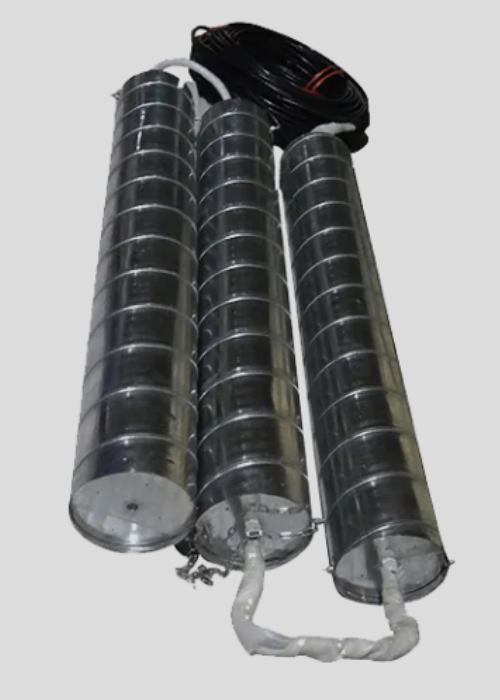
ICCP MMO Canister Anode
ICCP MMO canister anodes are a popular choice for cathodic protection due to their reliability, effectiveness, and ease of installation. They are commonly used to prevent corrosion in buried pipelines or soil beds, where corrosion can be a major problem.
The canister anodes are housed in a large metal container that provides protection against physical damage and helps to ensure that the anodes remain in the correct position. The container is filled with a coke breeze backfill, which provides electrical conductivity and helps to distribute the current evenly around the anodes.
The anodes themselves are made of a titanium substrate that is coated with an electrocatalytic metal oxide layer. This layer provides the electrochemical reaction necessary for cathodic protection, and the titanium substrate provides excellent durability and resistance to corrosion.
When a small direct current is passed through the anodes, they release electrons that react with the metal surface to create a protective layer that prevents further corrosion. The use of canister anodes provides a reliable and effective method of cathodic protection for buried pipelines and other structures in soil beds, reducing maintenance and replacement costs and extending the service life of the protected assets.
ICCP MMO Canister Anode Advantages
ICCP MMO canister anodes provide several advantages that make them a popular choice for cathodic protection systems:
Pre-packed anode tube: The anode tube is pre-packed with coke breeze backfill and has an exhaust pipe, which eliminates the “air resistance gap” phenomenon and allows gas to be discharged directly into the air.
Cable insulation and outer sheath: The anodes have cable insulation and an outer sheath made of galvanized iron sheet, providing protection against corrosion and erosion, and ensuring a longer service life.
Low maintenance: ICCP MMO canister anodes have a long service life and do not require maintenance, which reduces construction and maintenance costs.
Customizable: They offer free design and can be customized to meet specific cathodic protection requirements by combining different anode string shapes and specifications.
Overall, ICCP MMO canister anodes are a reliable and effective method of cathodic protection for buried pipelines and other structures in soil beds
ICCP MMO Canister Anode Applications
ICCP MMO canister anodes are versatile and find application in various industries for cathodic protection. Some of the key applications include:
- Shallow vertical and horizontal surface ground beds.
- Above/underground storage tanks.
- Reinforced concrete structures .
- Pipelines.
These canister anodes are suitable for use in various environments such as soil, freshwater, saltwater, and seawater. They provide efficient and long-lasting cathodic protection for structures, reducing maintenance costs and increasing their lifespan.
The canister anodes are an effective solution for preventing corrosion in buried pipelines and soil beds. The use of these anodes helps ensure the integrity of critical infrastructure such as pipelines and storage tanks, which are susceptible to corrosion over time. The anodes can be customized to meet specific cathodic protection requirements, making them a versatile option for various industries.
Options for Customizing ICCP Canister Anodes
ICCP canister anodes have various options to match different applications. These include different sizes and shapes of the anode tube and canister.
The diameter and length of the anode tube can be customized to provide appropriate coverage for the protected structure. The size of the canister can also be adjusted based on the installation method and environmental requirements.
Other options include the backfill material used in the canister, which can be coke breeze or a conductive polymer. The choice of backfill depends on the conditions of the installation site.
The available options for ICCP canister anodes make them ideal for a wide range of applications, such as pipelines, storage tanks, and reinforced concrete structures, and guarantee efficient cathodic protection.
| Canister Dimensions(cm) | Canister Dimensions(cm) | Tubular Dimensions(cm) | Tubular Dimensions(cm) | Current (amps) | Net Backfill Weight |
|---|---|---|---|---|---|
| Length | Diameter | Diameter | Length | 20 years | Kgs |
| 70 | 7.5 | 1.6 | 50 | 2.5 | 3.1 |
| 150 | 10 | 1.9 | 100 | 6 | 11.8 |
| 200 | 15 | 2.5 | 100 | 8 | 35.3 |
| 213 | 20 | 3.2 | 120 | 12 | 69 |
④ ———–ICCP MMO Wire Anode
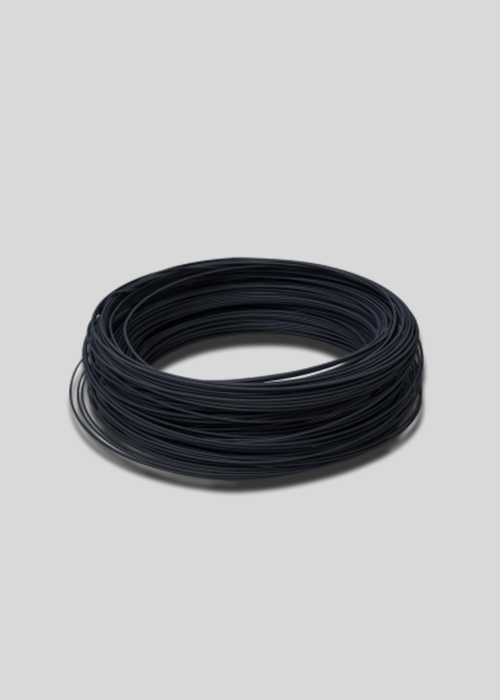
ICCP MMO Wire Anodes
What is MMO Wire Anode?
MMO wire anodes are a type of impressed current cathodic protection anode used to prevent corrosion in various environments. The anodes are made from pure titanium wire that is coated with a mixed metal oxide, which provides excellent protection against corrosion. The noble metal oxide coating has a low consumption rate, which allows the anode to last for many years, typically between 15 and 50 years, depending on the operating current and application.
MMO wire anodes come in three different diameters, allowing users to choose the best option based on their unique needs and requirements. The diameter of the anode wire can affect the anode’s output, with thicker wires providing higher output.
One of the benefits of MMO wire anodes is their excellent performance in soil and seawater applications. The minimal wear and dissolution of the coating ensure long-lasting and reliable cathodic protection.
Overall, MMO wire anodes offer an effective and reliable solution for preventing corrosion in various environments, such as pipelines, storage tanks, and reinforced concrete structures.
Advantages of MMO Wire Anode
ICCP MMO wire anodes offer several advantages in cathodic protection applications. These include:
High performance: MMO wire anodes have excellent performance characteristics with very little wear and dissolution of the metal oxide coating, making them very effective in impressed current cathodic protection.
Long service life: The design life of the anode depends on the operating current and can range from 15 to 50 years. This makes MMO wire anodes a cost-effective solution for long-term cathodic protection applications.
Customizable size: The anodes are manufactured in three diameters (1.0mm, 1.5mm, and 3.0mm) to suit different applications.
Versatile application: MMO wire anodes can be used in a variety of environments, including soil and seawater.
Low consumption rate: The extremely low consumption rate of the coating (measured in terms of milligrams per year) ensures long service life and low maintenance requirements
Applications of MMO Wire Anode
MMO wire anodes have a wide range of applications and are commonly used in various industries for cathodic protection.
Some of the key applications include:
Cathodic protection of buried pipelines: MMO wire anodes can protect pipelines buried in soil by preventing corrosion caused by soil moisture, acidity, and other environmental factors.
Cathodic protection of storage tanks: MMO wire anodes can protect the bottoms and walls of above-ground and underground storage tanks against corrosion.
Cathodic protection of reinforced concrete structures: MMO wire anodes can protect reinforced concrete structures, such as bridges, parking structures, and buildings, against corrosion caused by carbonation, chlorides, and other environmental factors.
Cathodic protection of ship hulls: MMO wire anodes can protect the hulls of ships against corrosion caused by exposure to seawater.
Cathodic protection of offshore structures in seawater: MMO wire anodes can protect offshore structures, such as oil rigs and pipelines, against corrosion caused by exposure to seawater.
Cathodic protection of power plant structures in saline or brackish water environments: MMO wire anodes can protect power plant structures against corrosion caused by the harsh environment of saline or brackish water.
Cathodic protection of steel piles in marine environments: MMO wire anodes can protect steel piles in marine environments against corrosion caused by exposure to seawater and other environmental factors.
The versatility of MMO wire anodes makes them an effective solution for protecting structures in various environments and industries.
Options for MMO Wire Anode
MMO wire anodes are versatile and can be used in a wide range of environments due to their excellent performance characteristics and durability.
MMO wire anodes come in different options to suit various applications. The options include different wire diameters, lengths, and packaging.
The diameter and length of the wire can be customized to ensure proper coverage of the protected structure.
The wire anodes can also be packaged in spools or coils for ease of installation. Other options include the type of connection used for the wire, which can be either a crimped connection or a welded connection.
The choice of connection depends on the specific requirements of the installation site. The options available for MMO wire anodes make them suitable for a wide range of applications, including cathodic protection of pipelines, storage tanks, reinforced concrete structures, ship hulls, offshore structures, power plant structures, and steel piles in marine environments.
Choose What Suits For Your Project
| Anode Model | Environment | Current Rating for 20 Years | Current Rating for 30 Years | Current Rating for 50 Years |
|---|---|---|---|---|
| MMO Wire-Dia 1.0mm | Soil | 160mA/m | 107mA/m | 64mA/m |
| MMO Wire-Dia 1.0mm | Fresh Water | 320mA/m | 213mA/m | 128mA/m |
| MMO Wire-Dia 1.0mm | Calcined Coke Breeze | 320mA/m | 213mA/m | 128mA/m |
| MMO Wire-Dia 1.0mm | Brackish Water | 960mA/m | 640mA/m | 384mA/m |
| MMO Wire-Dia 1.0mm | Sea Water | 1920mA/m | 1280mA/m | 768mA/m |
| MMO Wire-Dia 1.5mm | Soil | 240mA/m | 160mA/m | 96mA/m |
| MMO Wire-Dia 1.5mm | Fresh Water | 480mA/m | 320mA/m | 192mA/m |
| MMO Wire-Dia 1.5mm | Calcined Coke Breeze | 480mA/m | 320mA/m | 192mA/m |
| MMO Wire-Dia 1.5mm | Brackish Water | 1440mA/m | 960mA/m | 576mA/m |
| MMO Wire-Dia 1.5mm | Sea Water | 2880mA/m | 1920mA/m | 1152mA/m |
| MMO Wire-Dia 3.0mm | Soil | 480mA/m | 320mA/m | 192mA/m |
| MMO Wire-Dia 3.0mm | Fresh Water | 960mA/m | 640mA/m | 384mA/m |
| MMO Wire-Dia 3.0mm | Calcined Coke Breeze | 960mA/m | 640mA/m | 384mA/m |
| MMO Wire-Dia 3.0mm | Brackish Water | 2880mA/m | 1920mA/m | 1152mA/m |
| MMO Wire-Dia 3.0mm | Sea Water | 5760mA/m | 3840mA/m | 2304mA/m |
⑤ ———–ICCP MMO Anode Rod
Powered Anode Rod
A powered anode rod is a type of non-consumable anode rod that is used in water heaters to prevent the emission of unpleasant odours. It is an alternative to the traditional sacrificial anode rods that work through the process of electrolysis, where the anode rod sacrifices itself to protect the metal of the water heater.
A powered anode rod relies on electricity to create a current flow that protects the water heater from corrosion. It does not consume itself like sacrificial anode rods do, and thus, does not need replacement. It consists of a titanium or magnesium anode rod coated with a thin layer of platinum, and it is powered by a small control box that is connected to an electrical outlet.
Although sacrificial anode rods are used up more quickly in softened water, they typically need to be replaced after two to three years, depending on water quality. On the other hand, powered anode rods offer a longer lifespan of up to 20 years, making them more cost-effective in the long run.
While magnesium anode rods can protect the water heater liner, they consume more quickly than MMO anode rods, leading to over-protection, heating tube perforation, and other issues in areas with poor water quality. MMO (mixed metal oxide) anode rods, on the other hand, are more durable and offer better protection in harsh water conditions.
Overall, powered anode rods offer a reliable and long-lasting solution for preventing the emission of unpleasant odours in water heaters, and they are an excellent alternative to traditional sacrificial anode rods.
Advantages of Using a Powered Anode Rod in Water Heaters
Using a powered anode rod in water heaters offers several advantages, including:
• Extended lifespan: A powered anode rod can increase the lifespan of a water heater by up to 20 years, compared to traditional sacrificial anode rods.
• Elimination of unpleasant odors: The use of a powered anode rod effectively eliminates the unpleasant sulfur or “rotten egg” odour that can occur in water heaters.
• Easy replacement: Only the current hexagonal anode rod on 20-100 gallon water heaters needs to be replaced, making maintenance simpler and more cost-effective.
• Complete tank protection: A powered anode rod provides complete protection of the water heater tank from top to bottom, ensuring maximum corrosion prevention.
• Unaffected by water softeners: Unlike traditional sacrificial anode rods, the lifespan and effectiveness of a powered anode rod is not impacted by the use of water softeners.
Overall, the use of a powered anode rod is a reliable and effective solution for extending the lifespan of water heaters and eliminating unpleasant odours in the water.
Applications of Powered Anode Rods
Powered anode rods are a beneficial addition to various types of water heating systems. Some of the key applications of powered anode rods include:
Residential Water Heaters: Powered anode rods can be installed in residential water heaters to prevent the emission of unpleasant odours and extend the lifespan of the water heater. This makes them an ideal solution for homes that rely on well water, which tends to have high levels of sulfur and other minerals that cause odours.
Commercial Water Heaters: Powered anode rods can also be used in commercial water heaters to provide a long-lasting and effective solution for preventing odours and prolonging the life of the tank.
Industrial Water Heaters: Powered anode rods can be used in industrial water heating systems to prevent odours and extend the lifespan of the tank in applications where hot water is required. Industries such as food processing, chemical manufacturing, and oil refineries can all benefit from the use of powered anode rods.
Water Tanks: Powered anode rods can also be installed in water tanks to prevent odours and extend the lifespan of the tank. This makes them an ideal solution for homes and businesses that rely on well water for their water supply.
Overall, powered anode rods are a versatile and effective solution for preventing odours and extending the lifespan of water heaters and tanks in various applications.
Options for Powered Anode Rods
Options for Powered Anode Rods
Options for powered anode rods vary in length, size, material, and power to fit different types and sizes of water heaters and tanks.
They range in diameter from 0.75 to 1.5 inches and in length from 30 to 60 inches. Some may also include an LED indicator light to signal the need for replacement. These options make powered anode rods customizable and versatile for a variety of applications.
| Diameter(mm) | Length(mm) | Current(A/m2) | Life Circle |
|---|---|---|---|
| Φ1.0 | 100-500 | 20—80 | ≥10 Years |
| Φ1.5 | 100-500 | 20—80 | ≥10 Years |
| Φ2.0 | 100-500 | 20—80 | ≥10 Years |
| Φ3.0 | 100-500 | 20—80 | ≥10 Years |

